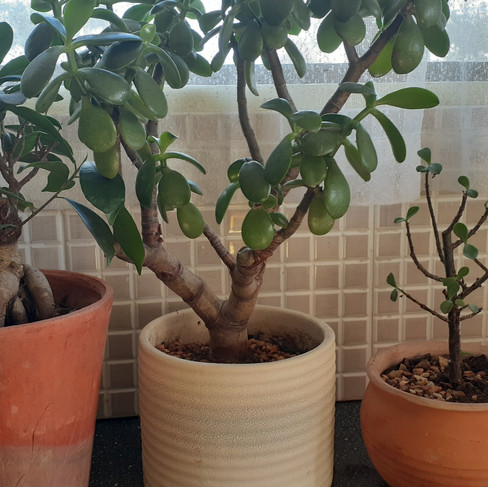Plant an indigenous tree for Arbour Week 2024 and help celebrate the Environment.
- Dean Weiss

- Sep 7, 2024
- 4 min read

Arbour Week is a dedicated week from Sunday 1st September to Saturday 7th September 2024, This week is set aside for the celebration and promotion of tree planting and conservation efforts, worldwide. It is a special occasion that aims to raise awareness about the importance of trees in our environment and to encourage individuals and communities to actively participate in tree planting activities. During Arbour Week, various events and initiatives are organised to highlight the benefits of trees, such as their role in providing clean air, conserving water, supporting biodiversity, and enhancing the overall quality of human and animal life. Schools, organisations, and local governments often collaborate to organise tree planting ceremonies, educational workshops, and community clean-up activities. Arbour Week serves as a reminder of the significant impact that trees have on our planet and the importance of preserving and protecting them for future generations.

A scene from the Amazon Rainforest
The Amazon Rainforest Day is observed on Thursday, September 5th. The challenges confronting the Amazon rainforest are multifaceted and present a major danger to one of the most diverse areas on the planet. Deforestation emerges as the main concern, fueled by practices like logging, agricultural growth, and infrastructure projects. This widespread deforestation not only leads to the destruction of crucial habitats for countless plant and animal species but also plays a role in climate change by releasing stored carbon into the atmosphere.
Recent fires in the Amazon Rainforest
Illegal activities like mining and poaching make the situation worse, leading to the degradation of ecosystems and the disruption of delicate ecological balances. The Amazon rainforest also faces challenges from climate change itself, with rising temperatures and changing rainfall patterns impacting its resilience and ability to regenerate. The loss of the Amazon rainforest has far-reaching consequences, not only for the indigenous communities that call it home but also for the global population. The rainforest plays a crucial role in regulating the planet's climate, storing vast amounts of carbon, and maintaining biodiversity essential for the well-being of ecosystems worldwide. One of the most efficient solutions to climate change is the protection of rainforests, as they absorb and store more carbon dioxide than any other forest type.

Amazon Parrot
In 2024, the Amazon is experiencing an unprecedented surge in fires, exacerbated by climate change and El Niño. The Brazilian Amazon witnessed a record number of fires in the first seven months of the year, the highest in twenty years. Despite a 50% reduction in deforestation from 2022 to 2023, burned areas increased by 36%. Several factors have contributed to the increase in fires, such as drier conditions associated with climate change, worsened by El Niño. 2023 was recorded as the hottest year, with June 2024 marking 13 consecutive months of record temperatures, making the forest more vulnerable to fires. Moreover, a severe drought in 2023 facilitated the spread of flames through the natural vegetation. The fires proved challenging to contain due to low river water levels, making Indigenous and riverside communities inaccessible.
Amazon Deforestation
What actions can you take to combat climate change for Arbour week in South Africa?
Despite the loss of rainforests globally, individuals have the opportunity to have a positive impact in South Africa by planting indigenous trees. Indigenous trees, which are native to a specific area, play a crucial role in the local ecosystem by supplying oxygen to humans and other animal species, improving soil quality, and contributing to climate regulation, among various other advantages.

Fever Trees
In Gqberha, you have the opportunity to buy indigenous trees from your local Nursery. Sherwood Garden Centre currently offers a variety of indigenous trees for sale, including the Fever tree (Vachellia Xanthophloea) priced at R599.99, the White Iron Wood tree (Vepris Lanceolata) at R399.99, the Milkwood tree (Sideroxylon) at R1,199.99, and the Monkey thorn (Acacia galpinii) at R569.99. To purchase a tree for Arbour Week or to contribute to the environment, please get in touch with Nadine at 041 398 4400.
White ironwood tree available at Sherwood Garden Centre
If you lack sufficient space to plant a large tree, consider planting a spekboom instead. Spekboom (Portulacaria Afra) is a succulent plant found in the Eastern Cape Province of South Africa. has been deemed as a miracle plant by many. It is a bright green, small-leaved plant with a contrasting red stem. Interesting facts about the spekboom:
a) The leaves are edible and high in basic nutrients - rich in Vitamin C and a favourite of elephants
b) Spekboom leaves are used for their medicinal values - good for sore throats
c) It helps fight Climate Change and Air Pollution - functions as a carbon sponge by extracting carbon dioxide from the atmosphere
d) Spekboom are easy to grow - it doesn’t need formal planting
e) It is water-wise and resilient - requires low maintenance and helps prevent soil erosion.
f) Spekboom can live for up to 200 years - This plant spreads quickly and is very versatile
Spekboom
The WESSA Algoa Bay Branch will be hosting an alien shrub clearing day on Saturday 14th September 2024 in Glengarry Crescent, Humewood, Gqeberha from 09:00 – 11:00. Look out for the WESSA feather banner. All are welcome to assist. The primary objective of this activity is to continue curbing the proliferation of Rooikrans and other invasive intruders in this ecologically fragile area. Invasive species remain a significant threat to the delicate indigenous vegetation. For more information contact Gisela on 073 124 2045.
September highlights environmental awareness and action, emphasizing sustainability and conservation. The International Day for Clean Air and Blue Skies on September 7 promotes combating air pollution and preserving clear skies. Encouraging cooperation for cleaner air and a healthier environment, this occasion motivates actions to safeguard the planet for the well-being of future generations.

Clean air and blue skies
If you plant a tree over Arbour week, please comment at the end of the article. Don't forget to share this article with your friends,
Sources















Comentarios